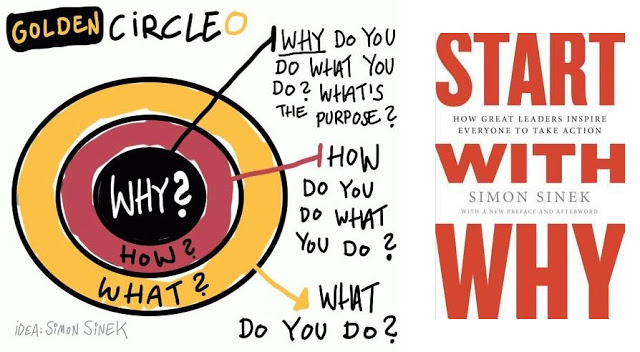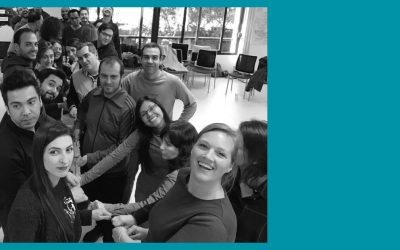Motivate your team: 3 crucial strategies for happier teams
Take a moment and think about what motivates you! What makes you go to work, start or, for that matter, stick to a project? But, also, think about what refrains you from accomplishing tasks. When do you detach, let go of it and lose interest? Your own motivation resources give you the clues to motivate your team.
In this blog post, I want to give you a quick insight into the development of motivational theories and why the ABC formula of motivation is crucial to creating a motivated team.
If you have read our previous blog article on motivation, you may be already familiar with Autonomy, Belonging (Relatedness) and Competence, the formula widely argued by the Self-Determination Theory and associated ideas of Daniel Pink’s Book Drive.
One BIG reason preventing your team to feel motivated
Most likely you have a position that requires your cognitive abilities for you to implement your knowledge, skills and creative thought. If this is what pays your bills, it is vital to be in top shape: mentally, physically and psychologically.
“In today’s knowledge economy, it’s the quality of your thinking that matters most, and the quality thinking is directly tied to energy level”
Ron Friedman
However, unless you are very lucky with your company’s social work culture, chances are that you, too, may be working in a place where it’s “normal,” or at least an often-practiced habit, to complain.
Though criticism is one way of detecting what’s wrong, and then moving towards change and continuous improvement; sometimes it results in a culture of continuous complaining. Such environments suck on the team’s energy to be productive and constructively solving problems.
“Life is essentially an endless series of problems. The solution to one problem is merely the creation of another”
Mark Manson
How do you keep up the spark?
Motivation is as complex as human psychology itself.
If it was easy to continuously be motivated without effort, you wouldn’t be reading this article. Anything from culture, generation, cognitive and social factors come into play to build motivation within individuals and collective groups.
You can find six mini-theories to explain motivation:
- Cognitive Evaluation Theory
- Organismic Integration Theory
- Causality Orientations Theory
- Basic Psychological Needs Theory
- Goal Contents Theory
- Relationships Motivation Theory
If you want to read about these theories in detail, click here.
However, broadly speaking, motivation in business management consultancy has been reduced to extrinsic (bonus, rewards, etc.) and intrinsic motivation. Check our worksheet with the ABC formula of motivation to find a simple, powerful exercise on creating an environment that thrives on motivation.
To learn more about intrinsic motivation, check Simon Sinek’s great TED talk Start with WHY. You have probably already come across this widely-spread concept.

Sinek’s concept of the Golden Circle feeds into agile leadership that foster teamwork based on values such as:
- transparency
- autonomy
- responsibility
- belonging
- collaboration
- collective ownership
What do you have to do to motivate your team?
As suggested earlier, whatever inhibits motivations needs to be carefully
-
Psychological Well-being
If a team member is going through a grieving process (i.e. divorce, loss of a first-degree relative, a loved pet, etc.), you can’t expect for this person to fully be available to you in terms of sparkling creative energy. Though one may jump into work to be distracted from the pain, it is a shared responsibility between organization and employee to look after the healing process. I am proud to have worked with organizations that supported their employees with a Coaching process to help through this transition.
-
Physiological
Some research has found that our mental activity is linked to our physical to great extent. Hence, efforts to improve health and safety at work, investments in the workplace environment (such as ergonomic chairs, tables, light, sound, open spaces for creative meetings) are highly appreciated. Opportunities to take a walk, offering a gym or yoga classes, along with flexible work hours and efforts to reduce commuting, are greatly valued as well. So, for your next meeting, maybe you want to take the stairs 6 floors up?
-
Social
We live for people and our relationships with them. So, the way we relate, communicate and interact mirrors directly our own wellbeing. The better the quality of relationships around me the higher the chances that I feel supported, seen and listen to. If I feel valued and trust my colleagues, I’d be more likely to go the extra mile and connect to the collective objectives of the team’s projects. As suggested earlier with the ABC formula, we urge to “belong” to a group.
To help you navigate through the challenges you may face at work in your leadership role, we create monthly worksheets with simple, yet hands-on 5-min and 10-min activities. Simple exercises help you get on track and stay focused on creating a thriving team dynamics. Take a sneak peek below.
We offer these worksheets for free!
Check our full library of practical worksheets here. In our section on Motivation, you can download this month’s On Motivated Teams, with activities to implement right away and practice every day. Browse the library to find extra exercises to improve motivation, lower stress, and increase productivity.
**Quick peek into our WORKSHEET**
_For you, if…
- You could do with more fun at work
- You want to increase performance & productivity
- You want to help your colleagues step up
_Quickies 5min
A) Acknowledge your Colleague
All too often we proactive giving feedback, but do we also focus on something positive? This week, talk to 5 colleagues and sincerely:
- share with them that you are grateful for something they have done
- praise them for the way they solved a problem
- talk about something of high value that they have accomplished.
Be authentic!
_Take it further!
…take it further and deepen the learning by doing all the exercises suggested in our worksheet. Sign up below with your name and email to download the complete worksheet.
Always keen to know how you are getting on!
Maike

MAIKE STOLTE
Executive Coach. Consultant. Trainer. Facilitator.
Categories
Contact us

Burnout. COVID. New Normal: How to get yourself back into balance & recover!
By now, most of us share a similar feeling: we feel drained. For months now, we have been bravely facing the Covid-19 pandemic. I think it’s fair to say that it has taken its toll on us. No matter your context, you may have been dealing with the stress of the...
Relational leadership: Influence is trusting and being trusted
We are our relationships. When we foster positive relationships, we create positive environments, develop positive projects and bring positive change to the world. This power of relationships is the base of relational leadership, focused on the leader’s ability to...
Insights From Natural Leaders: With Yasmine Khater
We can always find inspiring natural leaders close to us! In this series of interviews, I’m talking to people who have touched my soul: small business owners, neighbors, friends & colleagues. Those who inspire me to spread the wisdom & insights of our common...





0 Comments